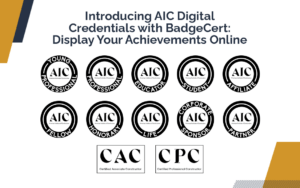Historically, construction companies have attempted to increase profits by cutting corners when it comes to ethics. In reality, this short-sighted approach leads to higher costs (and lower profits) because it introduces the risks of re-work, safety incidents, contract disputes, and other unwanted issues.
We believe it’s important to flip this mindset by helping contractors and construction companies understand how an appreciation for ethics can positively impact profitability. Let’s take a closer look at two key ethical issues in the construction industry that are tied to financial outcomes.
The Cost of Ethical Issues in the Construction Industry
Consider the following examples of how ethical issues can affect profitability if companies subscribe to old ways of thinking in construction management. Then, consider the better alternative of how ethical behavior can strengthen your financial position.
1. The Contract
Start with the contract. This is a legally-binding document between the contractor and the owner that specifies certain responsibilities and expectations for the project. There must be a mutual agreement on the terms of the contract before the project work begins. Then, once the work begins, contractors should strive to uphold their end of the bargain and support the owner.
However, contractors often come face-to-face with the temptation of attempting to complete the work as quickly as possible, for as little cost as possible, and of the minimum-acceptable quality to increase profitability. While this approach might sound good on paper, the end result is not ideal.
Consider the common example of a lump sum contract. In this arrangement, the contractor will provide the owner with a single price to complete the contracted scope of work. The profitability of the contractor is dependent on their ability to complete the contracted work within the lump sum contract price.
Once the contract is signed, additional funds will not be given or taken away regardless of the contractor’s final profit or loss. With this contract type, contractors have the highest amount of risk of costs and owners have the least, which is why many contractors have historically attempted to skirt ethical issues to increase their profits. But, it will not turn out well.
- Hiring untrained labor will often lead to re-work, scrap, and increased material costs.
- Rushing to finish the job will often lead to safety issues.
- Sacrificing quality for time and cost considerations will often lead to needing to re-do certain parts of the job at a later time.
Sure, you could hire inexperienced workers to get the job done, you could push your workforce to finish the project earlier than expected, and you could place quality on the backburner, but when you add it all up, it’s an unethical approach to construction management.
You’re not looking out for the owner and you’re creating tremendous risks for yourself that will eventually impact profits. Maybe the impact will not be felt right away, but if you have to bring another crew back in six months to fix a problem, then you will incur tremendous costs restarting the job and covering any potential damages to the owner.
– Better Alternative: Comparatively, you could hire experienced workers, complete the job according to the project schedule, and ensure that quality is treated equally to cost and quality.
Your profit margin might not be as great compared to a rushed job, but you will experience significantly less risk of needing to re-do the work or fix a problem for the owner down the road. By looking out for the owner and taking an ethical approach to construction management, you are less likely to incur unnecessary costs that impact profits.
2. Contract Delivery Methods
It’s one thing to have a contract in place with an owner. It’s another thing to actually follow the terms of the contract when delivering the project.
For example, there are key ethical issues to consider in the traditional contract delivery method of design-bid-build. In this popular delivery method, the owner has separate contracts directly with the architect and contractor. The architect designs the project, produces the construction documents, and provides construction administration. Once construction documents are completed, the project is put out to bid, and a contractor is selected to build the project.
The contract is largely awarded based on price. Then, the contractor is responsible for constructing the project in accordance with the contract documents. Both the architect and the contractor may subcontract out portions of their contracted work. However, they may remain solely responsible to the owner.
The contractor is generally considered to have the highest risk in this delivery method. Any mistakes in the bidding of the project are absorbed by the contractor, and there is no guarantee that the contractor will earn a profit on the project. Comparatively, the owner is generally considered to have the lowest risk because the owner has a fixed price for the work prior to starting construction.
Because the contractor carries the most risk in this delivery method, there is tremendous pressure to find ways to cut costs in order to turn a profit, especially if contractors realize they made a mistake during bidding that could hurt their financial position. This can lead to ethical issues that include:
- Not using the talent that was agreed upon in the contract.
- Only sending senior project managers to the job site once in a while.
- Using materials and equipment that are of less quality (e.g. cheaper) compared to what the owner paid for.
Additionally, this method typically does not require the owner to be involved in the day-to-day construction processes. Therefore, it’s tempting for contractors to cut corners if the owner is not paying attention. However, this violates the nature of the agreement to look out for the owner’s best interests, not just the contractor’s profits.
– Better Alternative: The best way to avoid ethical issues and support profitability is to communicate upfront. Be clear with the owner about what challenges you may experience delivering the project, point out that senior project managers may not be on-site every day but they will closely monitor progress, and take other steps to support the owner relationship.
Looking out for the owner and setting reasonable expectations will help your team execute the project the right way the first time without constantly feeling pressured to reduce costs. This will lead to higher quality work that will help reduce the risk of costly re-work and contract disputes with the owner.
Find More Information About Ethical Issues in Construction
We have touched on just a few of the most important ethical issues in the construction industry that affect profits. There are many other ways to slice this topic. We encourage you to learn more about key ethical issues by subscribing to our email newsletter.
In each newsletter, we address important topics concerning construction management. We’ll share insights, information, and other valuable resources that will support you in your role. The result will be a greater appreciation for ethics and a deeper understanding of how to evaluate ethical situations that will affect the financial health of your company.
To subscribe to our newsletter, simply enter your name and email address in the sign-up box below. We look forward to connecting with you!




